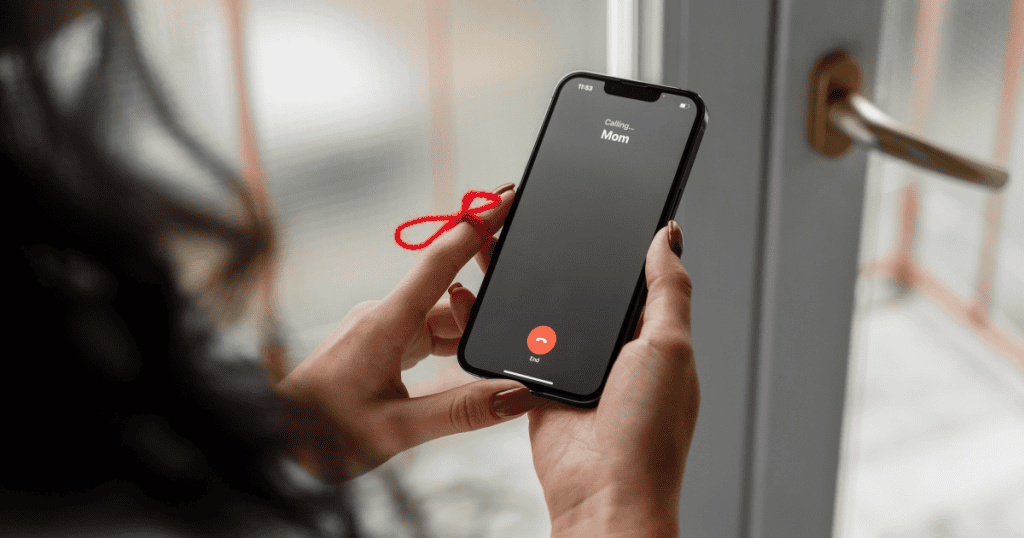Narcissists thrive on your guilt. Every “sorry” you hand over is another leash they use to pull you back into control.
For years, I handed out apologies like candy, even for things that weren’t wrong.
I remember once saying sorry to my mother because I was tired after a long day of school and wanted to rest.
Instead of comfort, I got a lecture about being “lazy.”
I apologized again, this time for making her upset. That’s how deeply I was trained to bend.
Another time, I apologized to my younger brother because I didn’t laugh at his joke.
He sulked for hours, and somehow, I ended up apologizing for “hurting his feelings.”
I wasn’t cruel. I wasn’t unkind. But I had been programmed to believe any ripple I caused was a storm I needed to fix.
But the day I stopped apologizing wasn’t the day I became rude. It was the day I became free.
Narcissists didn’t know what to do with me anymore when “sorry” stopped being my automatic response.
Here are the ten things I quit apologizing for, and how each one shattered their grip.
Table of Contents
Why Narcissists Depend on Your Apologies?

Apologies are more than words in a narcissistic family system. They’re currency.
Every time you say sorry, you’re handing over a coin of submission.
It’s like playing a rigged arcade game.
No matter how many tokens you drop in, the machine is programmed so you’ll never win the prize.
Your apologies just keep it running, flashing, and buzzing, while they walk away with the satisfaction of control.
They’re not looking for resolution. They’re looking to see how fast you’ll pay up.
In my family, apologies became survival tactics.
My toxic brother could start an argument, shout, and even throw things, but somehow, I’d end up saying sorry for “making him mad.”
My narcissistic mom would stand by, arms crossed, nodding as if my apology proved I was the problem.
That’s how narcissists twist the script. Your apology doesn’t repair the situation, but cements their version of reality.
And for years, I believed it was my job to keep the peace, even if it meant losing pieces of myself.
Narcissistic abuse survivors weren’t weak for falling into this cycle. We were adapting to survive.
But there comes a point where adaptation becomes self-erasure.
That’s when it’s time to break the cycle.
10 Apologies I Stopped Saying And How It Shattered The Narcissist’s Ego

For years, I apologized on autopilot, handing over my power one “sorry” at a time.
Each apology felt small, but together they built the cage I lived in.
The turning point came when I started pulling those apologies back, one by one.
Below are the ten moments I stopped apologizing, and how each choice shattered the narcissist’s control.
1. Saying No Without a Speech
My toxic sister once asked me to drive across town to pick her up because she “didn’t feel like taking the bus.”
I had a deadline at work and said, “No, I can’t.”
The silence that followed was deafening.
She expected me to backpedal, offer an explanation, or soften the refusal. Instead, I simply moved on.
For the first time, she stumbled. Saying “no” without the attached essay confused her because it left her with nothing to twist.
That “no” was a clean cut of the leash.
2. Taking Time to Reply (Or Not Reply at All)
My toxic mother would flood me with texts if I didn’t reply instantly.
“Are you ignoring me?!” “Don’t you respect family?”
I used to drop everything to soothe her, even if I was in class or exhausted.
Once, I was at my cousin’s birthday dinner. I silenced my phone.
By the time I checked it later, there were 17 missed calls and a thread of frantic texts.
Normally, I’d panic. This time, I didn’t. I let the storm pass without feeding it.
The next day, she demanded an explanation.
I simply said, “I was busy.” No apology. No guilt.
For once, my life didn’t orbit her needs.
3. Needing Rest Without Permission

Once, I came home from college and fell asleep in the living room.
My narcissistic brother mocked me, “You’re always tired, what do you even do?”
My mother chimed in with, “Don’t embarrass yourself. People will think you’re lazy.”
For years, I’d apologize and jump up, trying to prove I was “useful.”
Now? I rest. I don’t explain. I don’t apologize.
Rest is a right, not a crime.
Narcissists fear your rest because it means you’re no longer burning yourself out to fuel them.
4. Wanting More Than Bare Minimum Relationships
I used to accept crumbs from my controlling sister. Her version of “kindness” was not insulting me during family dinners.
When I started asking for respect, conversations without sarcasm, and boundaries around my belongings, she called me “demanding.”
That’s when I realized: I wasn’t picky. I was finally done surviving on scraps.
One evening at a family barbecue, she mocked me in front of relatives.
Instead of laughing it off and apologizing for “taking it too seriously,” I excused myself and sat with my cousins instead.
I refused the crumbs. And in that small move, I claimed my worth.
5. Going No Contact

Going no contact with my aunt was brutal. She guilt-tripped me with lines like, “Family is forever,” and “You’ll regret this when I’m gone.”
At first, I almost caved.
But silence became my shield.
The moment I stopped apologizing for cutting off someone who thrived on chaos was the moment I breathed freely.
The backlash came. Whispers at reunions, messages from cousins asking why I was “being dramatic.”
I didn’t defend myself.
Narcissists call it betrayal. I call it survival.
6. Protecting My Peace (Even if They Called It Selfish)
One Christmas, my brother tried to provoke me during dinner.
Instead of engaging, I quietly left the table and went to my room.
He yelled that I was being “dramatic.”
My manipulative mother agreed, saying I “ruined the mood.”
In the past, I’d return, apologizing just to keep the peace. This time, I stayed in my room.
Guarding my peace never made me selfish. It kept me alive.
What’s ironic is that narcissists will call you selfish for doing the very thing they do without shame, and that is choosing themselves first.
7. Telling the Truth Out Loud

I’ll never forget the first time I said it out loud, “Mom, that’s emotional abuse.”
The room went still. My toxic siblings shifted uncomfortably. My mother exploded, denying everything and painting me as ungrateful.
But the truth was out. And once spoken, it couldn’t be stuffed back into silence.
Naming abuse dismantles their carefully built image. It forces light into their shadows.
From that moment on, she knew I wasn’t afraid of calling things by their real names.
And that terrified her.
8. Refusing the Family Therapist Role
I was always the mediator.
I calm my brother’s outbursts, smooth over my mother’s moods, and try to keep family gatherings from imploding.
One day, after another shouting match between my jealous sister and mother, they both turned to me to fix it.
I said, “Figure it out yourselves.”
The silence was heavy.
By stepping down, I exposed our narcissistic family’s dysfunction for what it was: a cycle they chose, not my responsibility to repair.
The scapegoat role was heavy, but the therapist role was heavier.
Dropping it was like dropping a boulder.
9. Changing My Mind Without Guilt

Narcissists demand consistency, but only when it benefits them.
I remember planning a weekend visit home. At the last minute, I decided to spend it with my cousins instead.
My mother called me unreliable and selfish.
I didn’t apologize.
I reminded myself: flexibility is freedom. My life isn’t a contract written by them.
The ability to change your mind without guilt is one of the strongest forms of autonomy.
Narcissists hate it because it proves they don’t own your schedule or your loyalty.
10. Existing Without Shrinking
Growing up, I constantly apologized for my tone, for laughing too loudly, for taking up space at the table.
Once, my self-absorbed sister told me, “You’re too much.”
And I replied, “I’m enough.”
Another time, at a family wedding, my mother criticized how I danced. She said, “You’re embarrassing yourself.”
I smiled, kept dancing, and didn’t apologize.
That was the first time I celebrated my existence without shrinking.
That moment was the exclamation mark on this journey.
I’m not sorry for existing anymore.
When You Quit Apologizing, Narcissists Quit Winning

Every apology I reclaimed was another chain broken.
Saying no without an explanation, resting without guilt, cutting contact without fear, all of it chipped away at the control narcissists held.
The emotional payoff? Peace became non-negotiable.
My dad, my cousins, and later my husband reminded me that I didn’t need to earn my right to exist with endless apologies.
My worth was never up for debate.
When I stopped apologizing, I didn’t become “cold” or “selfish” the way they warned me I would.
I actually became warmer, more present, and more connected to the people who truly love me.
The absence of guilt created space for joy.
Truth is, narcissists unravel when their favorite weapon, your guilt, stops working.
When you stop apologizing for existing, you stop handing narcissists the script they use to control you.
You rewrite it. You live it.
And in that rewrite, you finally win.
Not just freedom, but yourself.
Related posts:
- 5 Strategic Phrases That Stop Narcissist Conversations From Haunting Me
- How I Stopped Feeling Guilty After Cutting Off My Narcissistic Family (And Why It Was Extremely Critical For Moving Forward)
- How I Stop Taking Emotional Responsibility For My Toxic Family Who Won’t Take It For Themselves
- 7 Perspective Shifts That Changed Everything For Me After Healing From Narcissistic Abuse
- 10 Non-Negotiable Rules I Live By After Walking Away From Narcissists


